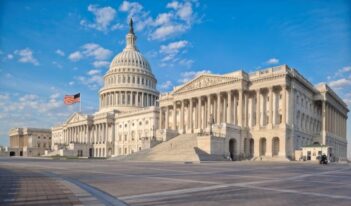Expert Officers Under Political Supervision
The Supreme Court validates political control over public health decisions.
VanDerStok and the Ghosts of Gun Deregulation
The Supreme Court weighs public safety concerns surrounding ghost guns in recent Second Amendment decision.
Nothing to See Here, Move Along
The Supreme Court’s recent unanimous decision on FDA’s tobacco-authorization authority is utterly unremarkable.
Recent E-Cigarette Decision Leaves Unanswered Questions
A unanimous Supreme Court instructed the Fifth Circuit to reconsider the harmless error rule for agency action.
It’s Time for Humanity’s Best Exam for AI
Better benchmarks can unlock the social benefits of AI technology.
The Price of Preserving Preventive Services Coverage
The Supreme Court preserves preventive services coverage but emboldens the HHS Secretary.
A Missed Opportunity to Clarify NEPA Law
The Supreme Court narrows NEPA, leaving key questions unresolved.
How We Subsidize Care for Low-Income People
A Supreme Court decision reveals flaws in how we pay safety-net hospitals—and why reform is overdue.
The Limits of Anti-Classification Doctrine in U.S. v. Skrmetti
The Supreme Court runs afoul of its own equal protection doctrine by ignoring explicit classifications.
Regulatory Policy and Practice on AI’s Frontier
Adaptive, expert-led regulation can unlock the promise of artificial intelligence.
One In, Fifty Out
President Trump can preempt state regulation of artificial intelligence and autonomous vehicles.
Decision About Immigration Judges May Change the Game
A recent court decision may help protect civil servants unlawfully removed by the Trump Administration.












